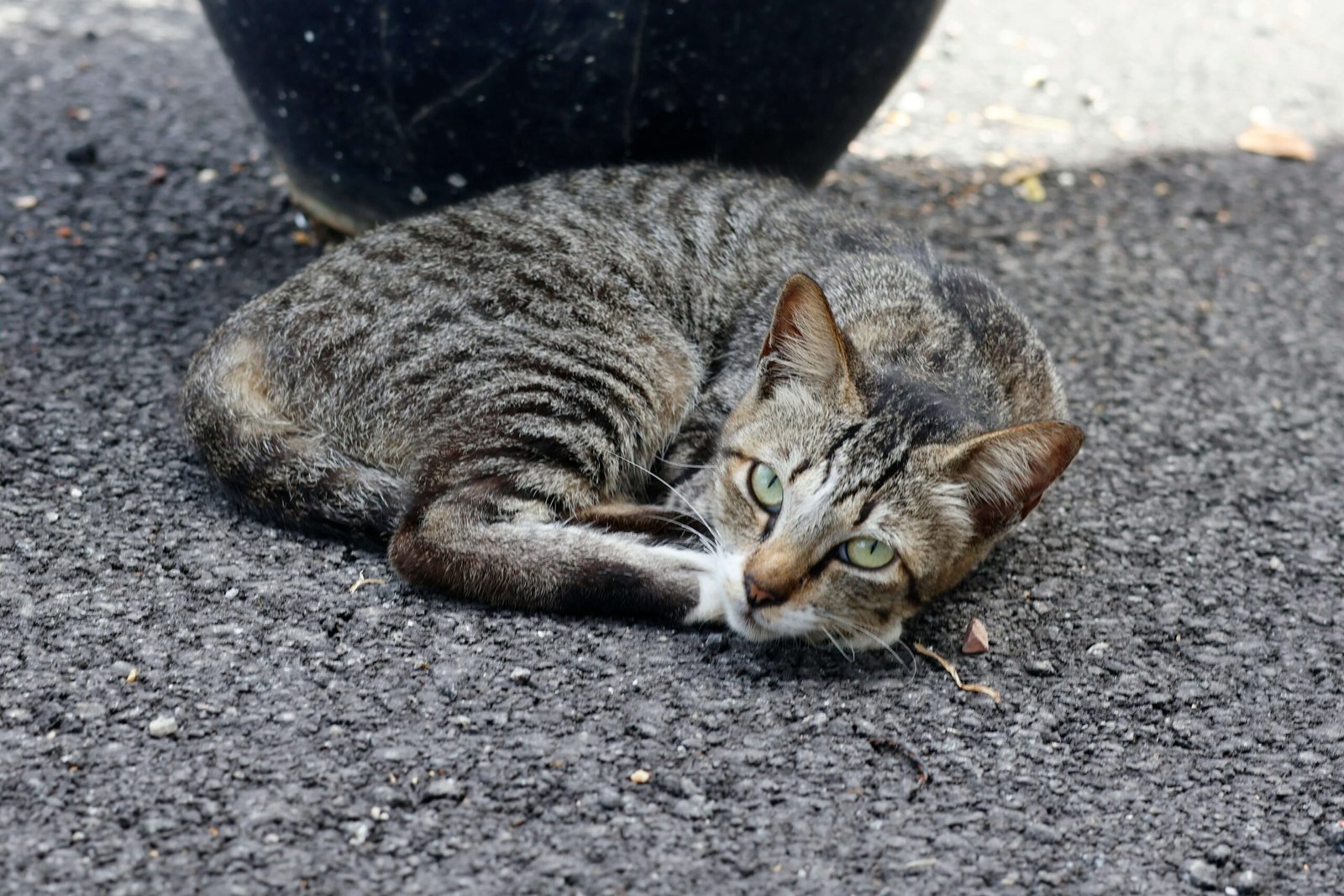Why Does My Cat Shake Their Head? Decoding the Behavior
Have you ever noticed your cat shaking their head and wondered what it could mean? While occasional head shaking is normal, persistent or excessive movements might signal something more significant. Cats rely heavily on their senses—especially their hearing—to navigate the world, and any discomfort in this area can affect their overall well-being. In this blog post, we’ll explore the reasons behind a cat shaking their head, from harmless habits to potential health concerns, and provide actionable tips to ensure your feline friend stays happy and healthy.
Common Reasons for Occasional Head Shaking
Not every instance of head shaking is cause for alarm. Sometimes, it’s simply your cat reacting to everyday stimuli. Here are some common, non-serious reasons why your cat might shake their head:
Ear Irritation : A small speck of dirt, dust, or debris in their ear can cause temporary discomfort.
Water Exposure : If your cat recently had a bath or got wet, they may shake their head to remove excess moisture.
Itchy Skin : Allergies or dry skin around the ears can lead to scratching or head shaking.
Playful Behavior : Cats sometimes shake their heads during energetic play or after a vigorous grooming session.
Temperature Sensitivity : Sudden changes in temperature might cause them to shake their head as a reflex.
While these reasons are generally harmless, it’s important to monitor how often the behavior occurs. If it becomes frequent or intense, it may indicate an underlying issue that needs attention.
Potential Health Concerns Linked to Head Shaking
If your cat shakes their head repeatedly or seems distressed, it could be a sign of a more serious problem. Here are some health-related reasons to consider:
Ear Infections : Bacterial or fungal infections in the ear canal can cause irritation, leading to head shaking and scratching.
Ear Mites : These tiny parasites are a common cause of itching and discomfort in cats’ ears.
Foreign Objects : Small objects like grass seeds or insects can get lodged in the ear, causing pain and shaking.
Allergies : Food or environmental allergies can manifest as itching around the ears and head shaking.
Dental Issues : Problems like gum disease or tooth abscesses can radiate pain to the ears, prompting head shaking.
Persistent head shaking should never be ignored, as it could indicate a condition that requires veterinary care. Early intervention can prevent further complications.
Check this guide 👉Why Does My Cat Lick My Head? Best 7 Behavior Tips!
Check this guide 👉Why Does My Cat Roll Over When She Sees Me? Best 7 Tips!
Check this guide 👉Why Would a Cat Pee on You? Best 7 Expert Tips!

Possible Cause | Signs to Watch For |
|---|---|
Ear Infection | Redness, swelling, discharge, foul odor |
Ear Mites | Dark debris, intense scratching, irritation |
Foreign Object | Pawing at ears, visible discomfort |
Allergies | Itching, sneezing, skin irritation |
Dental Problems | Bad breath, drooling, reluctance to eat |
How to Help Your Cat Stop Shaking Their Head
If your cat is shaking their head frequently, there are steps you can take to address the issue. Here’s a guide to help you support your furry friend:
Inspect Their Ears : Gently check for signs of redness, swelling, or unusual discharge.
Clean Their Ears Safely : Use a vet-approved cleaning solution to remove dirt or debris if necessary.
Monitor Their Environment : Identify potential allergens like pollen, dust, or certain foods that might trigger reactions.
Schedule a Vet Visit : If the shaking persists or worsens, consult your veterinarian for a thorough examination.
Preventative Care : Regular grooming and ear checks can help prevent problems before they start.
Taking proactive measures ensures your cat remains comfortable and reduces the likelihood of recurring issues.
Building a Healthy Routine for Your Cat
Prevention is key when it comes to minimizing behaviors like head shaking. Establishing a healthy routine can keep your cat in top shape and reduce the risk of ear-related problems. Here’s how:
Regular Check-Ups : Schedule annual vet visits to catch potential issues early.
Balanced Diet : Provide high-quality food rich in essential nutrients to support their immune system.
Ear Hygiene : Incorporate gentle ear cleaning into your grooming routine to maintain cleanliness.
Parasite Prevention : Use vet-recommended treatments to protect against fleas, ticks, and ear mites.
Stress Reduction : Create a calm environment to minimize anxiety, which can exacerbate health issues.
A consistent care routine not only promotes your cat’s well-being but also strengthens your bond with them.
Recognizing Subtle Signs of Ear Discomfort
Sometimes, cats won’t shake their heads but may still exhibit other subtle signs of ear discomfort. Being aware of these indicators can help you address issues early. Here are some signs to watch for:
Excessive Scratching : Frequent scratching around the ears or head can indicate irritation or infection.
Head Tilting : A persistent tilt of the head might suggest balance issues or inner ear problems.
Odor from Ears : A foul smell emanating from the ears is often a sign of infection or mites.
Redness or Swelling : Visible inflammation in or around the ear can signal an underlying issue.
Behavioral Changes : Increased irritability or reluctance to be touched near the ears can point to discomfort.
By recognizing these signs early, you can take swift action to ensure your cat’s ears remain healthy and pain-free.
Preventing Ear Problems Through Diet and Hydration
A balanced diet and proper hydration play a crucial role in maintaining your cat’s overall health, including their ears. Here’s how nutrition can support ear health:
Omega-3 Fatty Acids : These reduce inflammation and promote healthy skin, reducing the risk of ear irritation.
Hydration : Adequate water intake helps prevent dry skin, which can lead to itching and discomfort.
Limited Allergens : Avoid foods with common allergens like corn, soy, or artificial additives that might trigger reactions.
Probiotics : Supporting gut health with probiotics can boost immunity and reduce susceptibility to infections.
High-Quality Protein : Lean proteins provide essential nutrients that support tissue repair and immune function.
Feeding your cat a nutritious diet not only enhances their overall well-being but also reduces the likelihood of ear-related issues.
Strengthening Your Bond Through Observation
Observing your cat’s behavior, including head shaking, can deepen your understanding of their needs and strengthen your bond. Here’s how attentive observation benefits your relationship:
Learn Their Norms : Familiarize yourself with your cat’s typical behaviors to quickly spot abnormalities.
Respond to Needs : Addressing small issues promptly shows your cat they can rely on you for care.
Build Trust : Cats feel safer when their humans understand and respond to their signals.
Enhance Communication : Paying attention to body language improves your ability to interpret their feelings.
Celebrate Their Individuality : Every cat has unique quirks; embracing these fosters a deeper connection.
By observing and responding to your cat’s behaviors, you create a foundation of trust and mutual understanding that enriches both your lives.
Frequently Asked Questions About Cats Shaking Their Heads
Is it normal for my cat to shake their head occasionally?
Yes, occasional head shaking is usually harmless and can be triggered by minor irritations or playful behavior.
What should I do if my cat shakes their head constantly?
Persistent head shaking may indicate an underlying issue, so consult your veterinarian for a proper diagnosis.
Can ear mites cause head shaking?
Yes, ear mites are a common cause of head shaking due to the intense itching they create.
How can I clean my cat’s ears safely?
Use a vet-approved ear cleaner and avoid inserting anything deep into the ear canal to prevent injury.
Are allergies linked to head shaking in cats?
Yes, allergies can cause itching around the ears, leading to head shaking as a way to relieve discomfort.
Understanding Your Cat’s Needs
Cats are masters at hiding discomfort, so behaviors like head shaking serve as important signals for their well-being. By paying close attention to their actions and seeking professional guidance when needed, you can ensure your cat remains healthy and content. Whether it’s addressing an ear infection, preventing parasites, or simply providing a stress-free environment, every step you take strengthens the bond you share with your feline companion. Remember, even the smallest gestures of care can make a big difference in your cat’s life—and yours too.
Dog Tapeworm Life Cycle: Best 7 Expert Tips! – Learn how tapeworms infect dogs, spot symptoms, and break the cycle with expert prevention strategies.
Anxious Cat Body Language: Best 7 Expert Tips! – Learn to spot signs of stress, understand triggers, and help your cat feel safe and relaxed.
Anxious Dog Body Language: Best 7 Expert Tips! – Learn to spot signs of anxiety, respond effectively, and help your dog feel safe and secure.
Is Breeding Dogs Bad? Best 7 Expert Tips! – Explore the ethics, benefits, and risks of dog breeding to make informed decisions for a better future.





